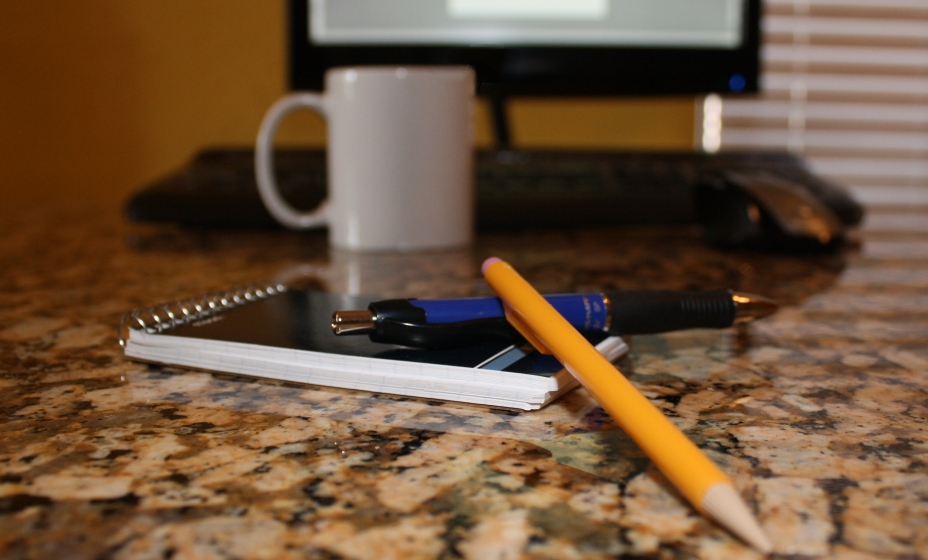
ENTRANCE RESTRICTED TO TRUE BELIEVERS:
Back in a previous life, I had just co-written a novel called “Grandmaster” about two chess-playing spies and my partner and I were set to do a bookstore signing, in the heart of Wall Street, in one of New York City’s biggest bookstores.
The publicist asked if I would play chess against customers, with anyone who beat me getting a free book.
I told her sure, but bring a lot of free books. What I didn’t understand was that this engagement had been announced on Page One of the New York Times and when we arrived the next day, there was already a line of people milling around the bookstore. (Let it go without mentioning that I had had no sleep and I was also ferociously hung over from doing what I so frequently did the night before, particularly since I forgot that I had a book engagement the next day. And I couldn’t imagine what all these people were hanging around a bookstore for.)
Anyhowsomever, my partner and I arrived late — NYC traffic, you know — and I was hustled off to a table with a chessboard and a cluster of people standing around waiting to play. I had bought a clock for speed chess but in my clunky useless fashion, I couldn’t get it to work.
So I decided I’d just play fast and give everybody a chance at my naked throat.
It turns out that we had six chess boards and I was going to give a simultaneous exhibition. Damn, I thought. If I had known this, I could have arrived sober.
Well, in for a penny, in for a pound. I started playing. Some of my opponents seemed like pretty good players, but they often overlooked the obvious. And one player’s hands were visibly shaking as he pushed a pawn deep into my territory.
In one game, I moved and heard a bystander (of whom there were many) say, “He just lost his queen.” His companion, a beefy guy with a beard, said, “Naaah. It’s a sacrifice. He’s got a plan.”
I looked back at the board in time to see my opponent knock off my unprotected queen. But his hand was shaking too.
Some sacrifice. Some plan. Ten moves into the game and I’d already blown the queen.
Screw it. I was flying today. I could beat anybody and I could sure beat this guy even without a queen, so I hung in there, and eventually, twenty moves later, got around to announcing checkmate. When i pulled it off, the kibitzer with the beard said, “See? I told you he had a plan.”
Drunk as a skunk, I played all thorough lunch — won five games and drew one game (which i could have won because I had a passed pawn but I was too tired to waste the time proving it in an end game.)
When my partner and I were ready to leave, she pointed to a sign on the wall behind me, which I had not seen all day. Somebody, thinking to promote our book, had hoisted a legend which said, “Play chess with the GrandMaster.”
And suddenly I understood the palsied hands, the indecision of my opponents: they were afraid of me. And what they believed had really come true. They weren’t losing to me; they were losing to what they thought I was…a grandmaster. And me? Even though I hadn’t seen the Grandmaster sign overhead, I came to believe in my own majesty, and for those few fleeting moments, I fed off my opponents’ weakness and not one of them could have beaten me that day.
And so too with writing. As with chess, you can’t win if you can’t play the game with at least some skill. But to go with your skill you have to have confidence. You have to know that you’re right; you have to stand up for your book the way you want to write it, and if you do it hard enough and often enough, and if you’re good enough, the people you deal with — agents and editors and publishers — will come to agree with you. Be bold…and don’t surrender easily to anyone else’s opinion. The only viewpoint that usually counts is yours.
I’ve told my life story enough times but maybe one more time won’t hurt. My partner, Dick Sapir, and I wrote our first novel in June 1963. We didn’t know anything about publishing, so we did the usual stupid things, like sending the manuscript off for critique to one of those alleged literary agent quacks who used to advertise in Writers Digest.
Bad advice and nothing happened and years passed and then because of a dentist and a secretary, our manuscript got bought by Pinnacle Books and we were in the Destroyer book business. But it was 1971; we had spent eight years “on the beach” and then we were overnight successes. The point here is that we kept trying because we thought our first book, “Created the Destroyer,” was pretty good. Fifty million sales later for the Destroyer series, that’s still my opinion.
But that’s a small horror story. Here’s my favorite. There was a Brit writer wannabe named John Creasey. He wrote and he wrote and he wrote and sold nothing. Nobody would buy any of his work. When should he have quit? After 100 rejections, 200? The only correct answer is never. Creasey got — (the number varies) — anywhere between 800 and 1,200 rejection slips before he sold something. And then he never got another rejection notice and by the time of his death had written, God love him, 500 books, including a series, my favorite police procedural, called Gideon of Scotland Yard which, I suspect, was sort of an inspiration for Ed McBain, the American writer who did 87th Precinct.
Moral of the story is that Creasey never quit.
W. C. Fields used to say, “if at first you don’t succeed, try, try again. And then quit, because there’s no sense in making a fool of yourself.”
Funny, but hogwash. Don’t quit. Keep going. Mind you, I’m not saying, don’t try to improve your work. If everybody tells you that nobody is going to buy a story of a giant ape atop Empire State Building because it’s been done before, you might think of listening to them.
But if your heart tells you “no,” then say to hell with them and listen to your heart.
And keep writing. But first comb your hair.




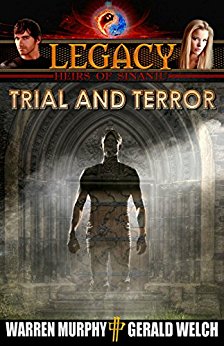
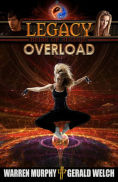

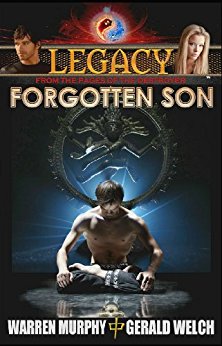
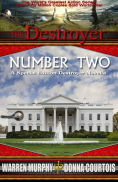
Great post. But I should point out that there’s a difference between confidence and arrogance. I’ve encountered a lot of unpublished first novelists who spend so much time preening and pontificating that they, oops, forget to write. In this field, attitude is NOT everything. It might get you noticed at cocktail parties. It might even get you laid. But posing as a great writer won’t make you one. Only writing will do that. Writing and failing and then writing some more, whether you get praised for it or not, whether you think you’re on top of the world or in the cellar with the other worthless rats… if you write, you’ll become a better writer. By the way, when the chess-playing incident occurred, Warren was humble about it, even though he was an excellent player with an “Expert” rating. He didn’t expect to win. I don’t think he even cared if he won or not. He just did it. That’s the attitude of a winner, of a writer, and of an artist.
Pingback: Destroyerclub First June Chat | Destroyerclub
Great post Warren!
Grandmaster is one of my favorites, always makes me cry when reading it.
Just finished reading ‘Bobby Fischer Goes to War: How A Lone American Star Defeated the Soviet Chess Machine’ which was an interesting read.
Thanks again and please keep sharing your wisdom-it’s invaluable to us writers.
best
James Hodgson